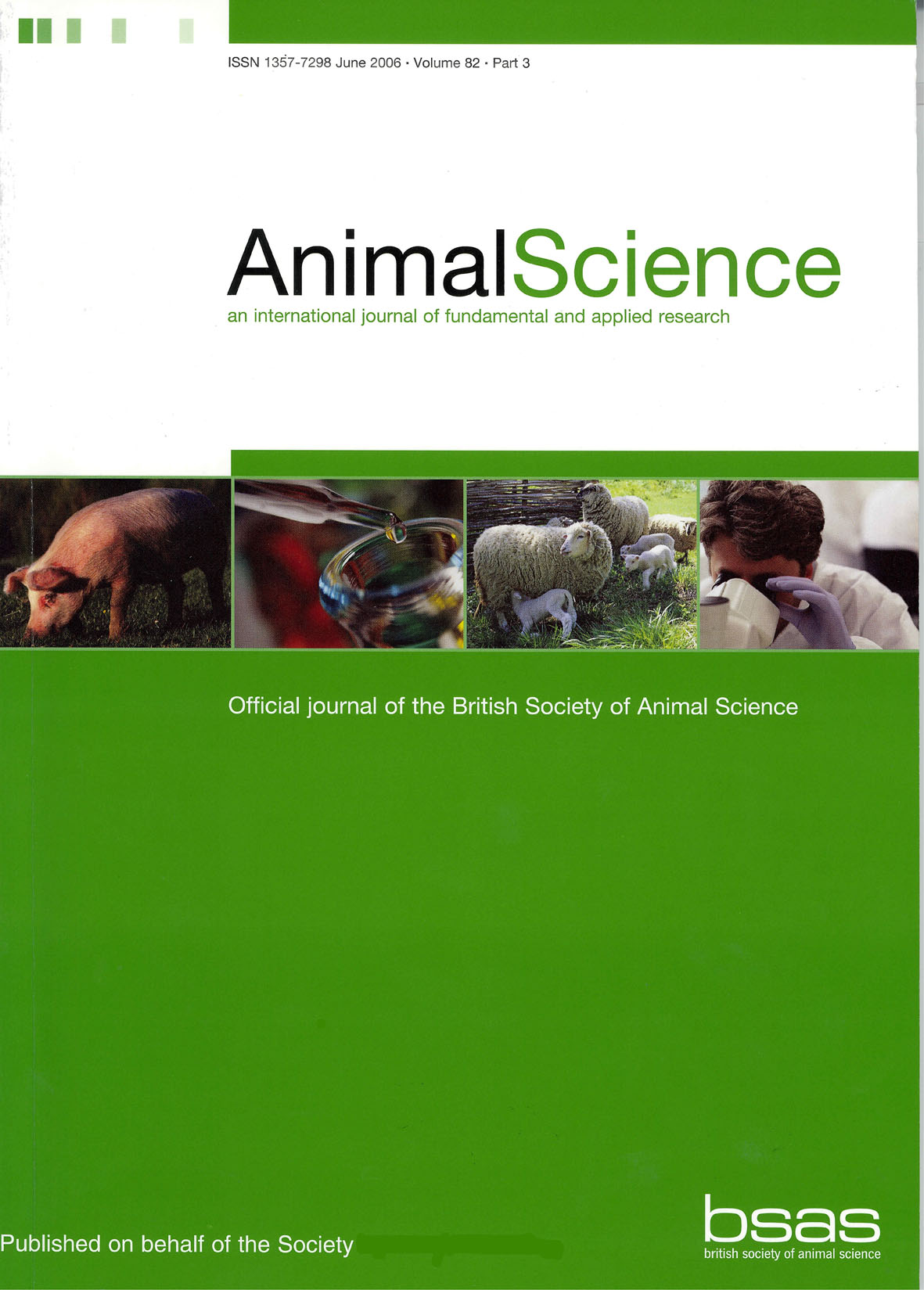Article contents
The effect of energy supply on the contribution of lean tissue to total body protein mass in pigs slaughtered at 100 kg
Published online by Cambridge University Press: 02 September 2010
Abstract
The effect of energy supply between 45 and 100 kg body weight (BW) on the contribution of lean tissue (muscle plus intermuscular adipose tissue) to total protein mass was studied in Large White castrated males (cLW), crossbred Piétrain × Large White castrated males (cPPx) and boars (bPPx). The pigs were allocated to four energy levels (0·70, 0·80, 0·90 or 1·00 ad libitum) and kept in metabolism cages in experiment 1 or given food ad libitum and kept in individual pens in experiment 2. Daily protein supplies were calculated to be non-limiting for growth and identical for all pigs in experiment 1. Temperature was 23°C in both experiments. The pigs were slaughtered at 100 kg BW and physically dissected; the body tissues were chemically analysed. Taking into account housing conditions, the food intake of pigs in experiment 2 corresponded to 1·20 of ad libitum intake of pigs in experiment 1; data of both experiments were combined. The energy supply and the type of pig influenced significantly the protein content of empty BW (eBW) (170 g/kg on average), of lean (184g/kg on average) and non-lean compartment (eBW minus lean, 152 g/kg on average), the proportion of total protein deposited in lean (604 g/kg of total protein, on average) but not the protein content in fat-free eBW (209 g/kg on average). The fat-free eBW can be predicted as 4·8 times the body protein mass.
Keywords
- Type
- Research Article
- Information
- Copyright
- Copyright © British Society of Animal Science 1997
References
- 4
- Cited by


